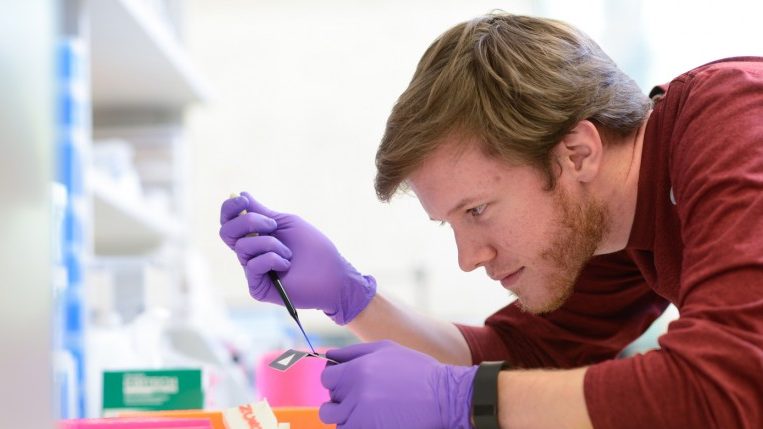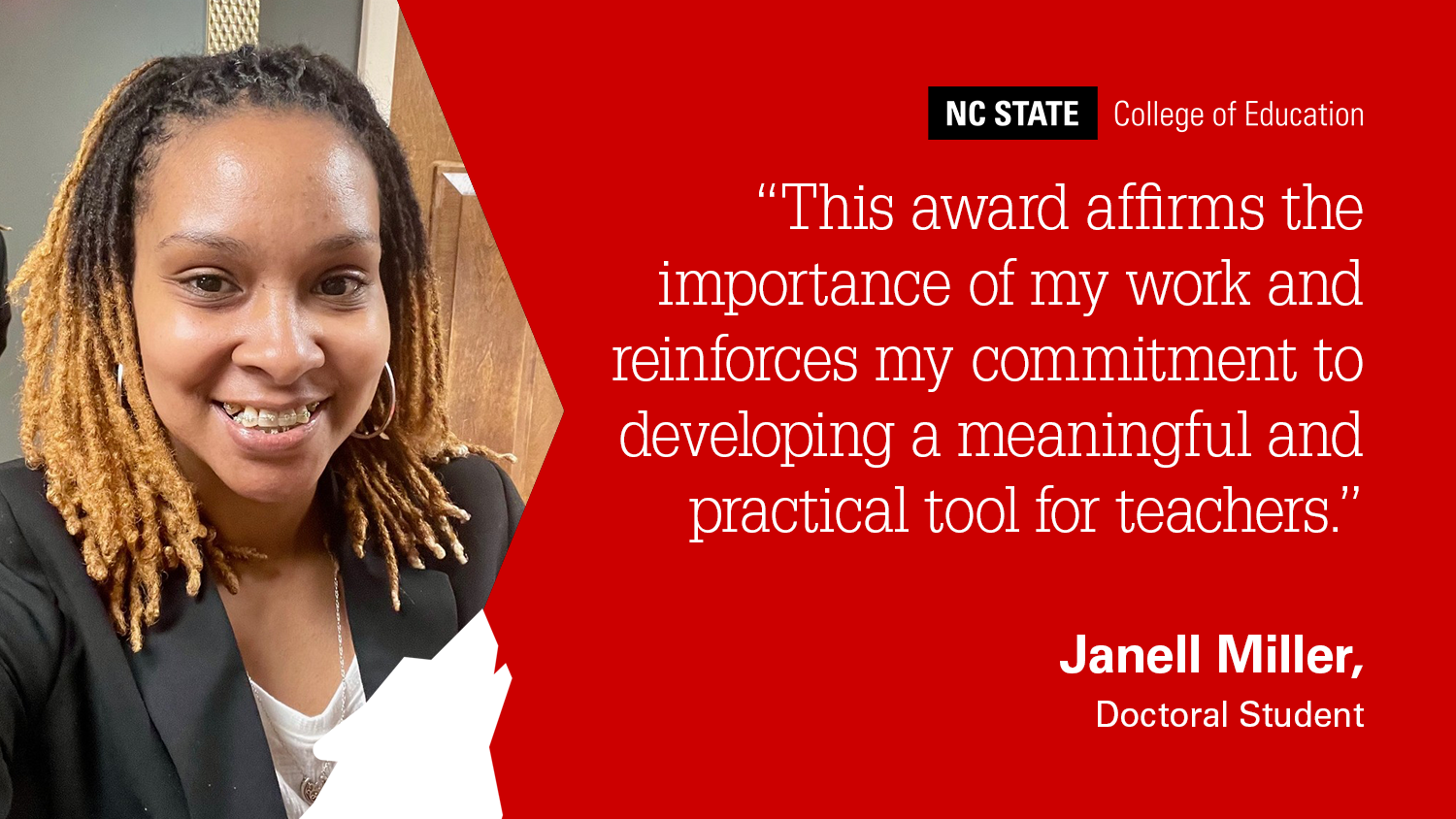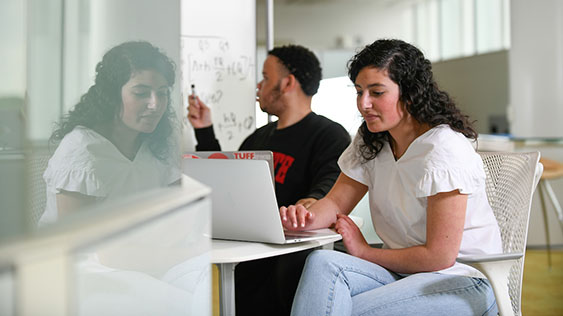3MT Winner Helps Food Banks Reach More People
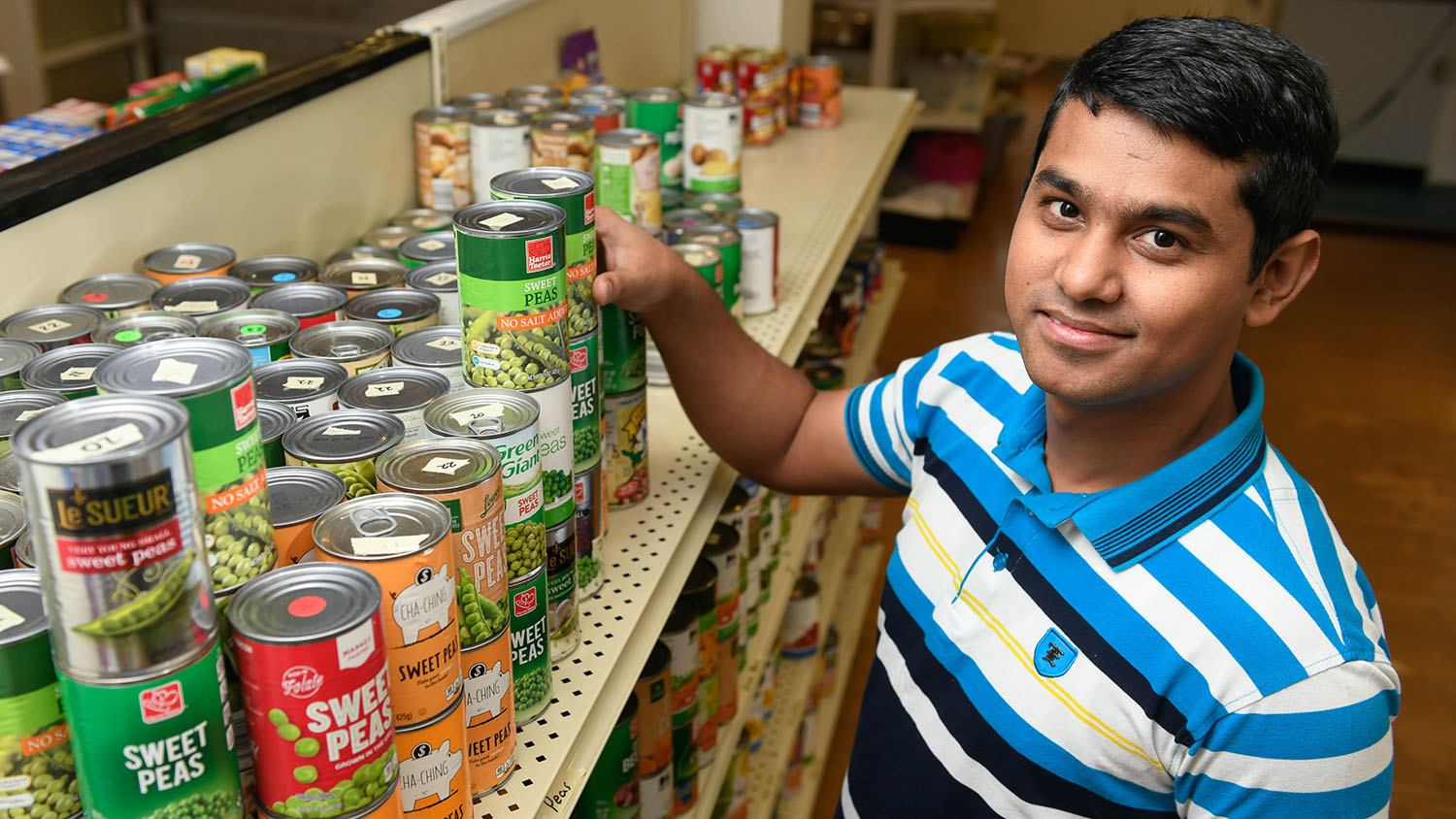
Hafizul Islam wanted to be a doctor when he was growing up in Bangladesh. But his strength and interest in mathematics led him down a different path, yet one that still allows him to help people.
Now an NC State Ph.D. student in industrial and systems engineering, Islam was named the first place winner in the Graduate School’s fifth annual Three Minute Thesis competition. He shared the research he is doing to address hunger by helping food banks distribute their resources to match the need.
Islam’s 3MT presentation, FEEED the Hungry, focused on finding ways to efficiently, effectively and equitably feed hungry people by reducing food waste. His slide for 3MT included an “Expired” stamp over a photo of food and a picture of someone holding a sign that read, “Hungry, Need Help. God bless.”
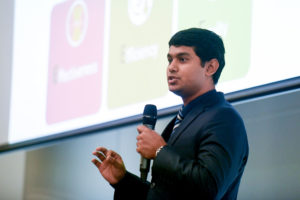
He opened his presentation by asking the audience, “How many of you have ever seen a sign like this?” Many hands went up, and Islam went on to explain his research on redistributing food to the hungry.
As an undergraduate in Bangladesh, Islam studied industrial and production engineering. He also earned an MBA and went to work for a financial institution. But he wanted to use his mathematics skills to “do something more challenging – to take a real-life complex problem and use mathematical models to solve it,” he said.
He began looking for graduate programs rich in systems analysis and optimization, and he found a good fit with NC State’s industrial and systems engineering program. The ISE Department generally offers assistantships to incoming Ph.D. students and provides them the opportunity to get to know the faculty members in the department before deciding on the type of research they want to conduct.
“In my mind, I wanted to work on a problem that directly impacted people’s lives,” he said. “My advisor works on health systems, but at first, she didn’t have an opening (for a graduate student) in health care research.”
Julie Ivy, Islam’s advisor and professor of industrial and systems engineering, asked him to consider another project on hunger reduction – using surplus food that would be wasted to benefit hungry people. The project is funded by the National Science Foundation.
“(Dr. Ivy) told me about this project, and I immediately could connect with the problem of hunger because I have seen it in my own country,” he said.
Food waste is something that Islam just can’t tolerate. “With the food we waste, so many people could benefit,” he said. “I personally always try to fill my plate with only the food I can eat. I hate to waste food.”
His research aims to help food banks develop a better supply chain, Islam said. In the U.S., more than 200 food banks collect excess food that is distributed to smaller community resource organizations. “If we could save all the food waste in the United States, we could more than feed the need,” he said.
Islam is working with the Food Bank of Central and Eastern North Carolina, which provides food to hunger prevention organizations in 34 counties. But not all organizations have equal capacity to store and distribute all types of food available.
The food bank distributes four different types of surplus food: Dry food (canned and non-perishable), frozen, refrigerated and produce. To distribute the frozen and refrigerated foods, the smaller organizations must have freezer space and refrigeration.
The food banks take in as much surplus food as they can to distribute to those in need. “But (the food banks) also need to do this equitably, ensuring that they are actually distributing the food to cover as many people as possible in a fair way, so that everyone’s living standard is lifted in the same sort of range,” Islam said.
He is developing a mathematical model that balances the food supply with the demand across the service region to distribute the optimal amount of food to each demand zone. Storage capacity, available refrigeration and freezer space must be considered, along with the cost of distributing the food – a $1 savings in transportation cost can provide 10 additional meals, he said.
“My model helps the food bank decide, based on the location of the supply and the location of the demand, how they should collect the supply and distribute it through their existing branch networks so that they can save some money in transportation,” he said.
The goal is to develop a system that can be adopted by any food bank in the U.S., and eventually, across the globe. Once he completes his Ph.D., Islam would like to continue his research in a university setting, and possibly take the model to his home in Bangladesh.
“In Bangladesh, some small organizations help provide food, but nothing like the U.S. system. Could we replicate this? I would love to take this system to Bangladesh,” he said.
Participating in the Three Minute Thesis competition was a new experience in science communication for Islam. He learned about the competition through the Graduate School’s newsletter and decided to attend a preparation workshop organized by the professional development team. Watch Islam’s 3MT presentation.
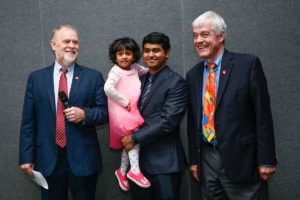
The workshop helped him to hone the presentation, improve his slide and connect directly with the audience through his opening question. “The man with the sign is someone we have all seen,” he said.
Islam found the 3MT experience to be very useful. It will help him to design his talks for other short form science communications, including his poster presentations. “With the poster, it usually takes five to six minutes to explain my research,” he said. “But if I can convey my research in three minutes, it will improve my poster presentations.”
He also feels like the experience will help him in job interviews, to explain his work more concisely. Even job interviewers in your own discipline want to hear an “elevator speech” explanation of your work, he said. He recently signed up to for a Graduate School writing support in the spring.
Islam and his wife, Sabura Khanam, have a 3-year-old daughter, Aanabia Islam, who greeted him with open arms after he won the 3MT competition in October.
Are you a student experiencing food or housing insecurity? NC State’s Pack Essentials can help. Visit the Pack Essentials website today.
